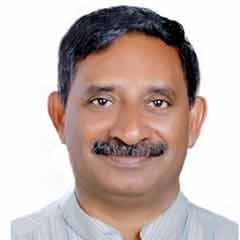As reports, orders gather dust, tourism players have a free run in landslide-prone zones of Wayanad

Mail This Article
Meppadi: While the landslide-hit Mundakkai-Chooralmala region of Wayanad district is struggling to get back to normal, countless reports flagging ills of hi-voltage tourism and endless exploitation of natural resources are gathering dust in various offices, including in the district Disaster Management Authority (DDMA) chaired by the district collector.
A prime example is the 10-month delay in initiating any action on the reports by the District Town Planner, Meppadi panchayat secretary, Fire and Rescue Department and Divisional Forest Officer the point at the various violations at Thollayiram Kandi, an ecologically sensitive zone, in the name of tourism. The snail pace of bureaucracy means all resorts have been operating with added vigour without any care for nature.
A summary report submitted by the District Town Planner to DDMA on September 27, 2023, which compiled the reports of various agencies, indicated that several resorts located in the landslide-prone zones of the Eastern slope of the Western Ghats violate all norms and regulations.
The Meppadi panchayat secretary's report points to how large-scale resorts flout norms. While a prominent resort at Thollayiram Kandi has obtained building numbers only for three buildings, it now operates seven buildings on its premises. Though a licence was issued earlier to construct a special residential building, it was cancelled later on the direction of the District Disaster Management Authority (DDMA) as the region falls in the hazard-prone zone. At the same resort, a restaurant has been built with the permit issued to construct a residential building, the report notes.
Interestingly, a mammoth glass bridge operating in the region does not even have the panchayat's permit. Moreover, multiple glass bridges are operating in the area violating all sorts of norms.
Meppadi panchayat secretary Noushad Ali told Onamnorama that the DDMA has already directed the local body not to authorise any illegal constructions at the red zone. “We give 'stop memos' whenever we come to know about violations. But these resort groups would resume construction using some other means,” he said. He did not give a direct answer as to whether the unauthorised building would be demolished. “That will depend on the directions from the legal cell,” he said.
Apart from land violations and building norms violations, encroachment of forest and government land, complaints received against the resort groups include death and injury to guests during trekking and aqua adventures.
The panchayat secretary's report further states that a tourism property started boating after widening a small pond without NOC (no objection certificate) from any agency concerned.
The report of the District Town Planner notes that in a landslide-susceptible Thollayiram Kandi, 2,000 to 2,500 tourists visit the glass bridges. The area is just 2.5 km away from the landslide-hit Puthumala. As per a map prepared by the Kerala State Disaster Management Authority (KSDMA) on the hazard susceptibility, the region falls in the landslide-prone zone where only small houses of 200 sq m can be allotted. This means commercial-scale assembly of people – be it the resorts, homestays or dormitories – should not be allowed.
In its report, the Fire and Rescue Department says that several glass bridges in resorts operate without its NOC and in case of casualties the rescue operation from the hilly areas would be tough.
In another report, the department says that more than 30 resorts and homestays operate near or inside the forest zones in the region.
Police have also noted that more than 200 four-wheel jeeps operate in the region to take tourists uphill through the bumpy roads which would make it tough for rescue operations in case of accidents. They have also stressed the need to reduce the number of tourists.
Meppadi panchayat president K Babu told Onmanorama that the resort groups and large players in the tourism sector have the wherewithal to override its directions. “Though we issue stop memos and closure notices regularly, they move legally or use their 'power' to tide over our interventions,” he added.


